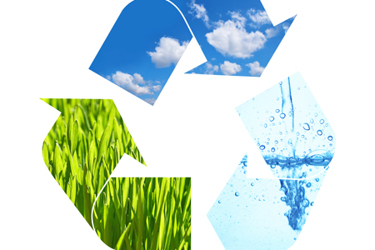Net-Zero Water Utilities For A Sustainable Future
By Robert Brears

Greenhouse gases (GHGs), such as carbon dioxide, methane, and nitrous oxide, trap heat in the atmosphere, leading to global warming. As a result, climate change occurs, significantly affecting water resources by intensifying the water cycle, which in turn causes more severe rainfall, flooding, and droughts in various regions.
Therefore, it is vital for water utilities to aim for net-zero emissions, effectively reducing their greenhouse gas contributions and lessening the impact on water resources.
Here are three essential themes that play a crucial role in shaping water management's future while reducing GHG emissions:
Renewable Energy In Wastewater Treatment Plants
Wastewater treatment processes can be energy-intensive, contributing to increased GHG emissions. Water utilities can reduce their carbon footprint by integrating renewable energy sources into wastewater treatment plants while maintaining high water quality standards. Examples of renewable energy solutions include solar panels, wind turbines, and biogas generation through anaerobic digestion. These approaches can offset the energy requirements of treatment processes and even contribute surplus energy back to the grid. Explore the impressive transformation of one of Germany's largest sewage treatment plants as it embraces a decentralized renewable energy approach, achieving 100% energy self-sufficiency.
Water Conservation And Demand Management
Encouraging water conservation and implementing demand management strategies can help reduce the energy required to treat and distribute water, ultimately lowering GHG emissions. Water utilities can promote conservation through public awareness campaigns, tiered pricing structures, and incentives for installing water-saving appliances and fixtures. Additionally, utilities can invest in smart metering systems to monitor and manage water usage more effectively. Dubai's Electricity and Water Authority has taken a remarkable step towards efficient resource management by installing over 2 million smart meters for electricity and water consumption.
Recovery Of Resources From Wastewater
Wastewater treatment plants can be transformed into resource recovery facilities by extracting valuable products such as biogas, nutrients, and water for reuse. For example, anaerobic digestion can be used to produce biogas, which can then be converted into electricity or used as fuel, reducing GHG emissions from fossil fuel consumption. Nutrients like phosphorus and nitrogen can be recovered and used as fertilizers, while treated wastewater can be reused for irrigation, industrial processes, or groundwater recharge. Read how numerous locations around the world are viewing wastewater as resource water.
Additional Insights:
- Optimising Water Resource Management: Smart Water Solutions and Success in Barcelona
- Urban Farming and Water: Innovations for Sustainable Agriculture
- Circular Economy Cities: How Nordhavn Leads the Way in Sustainable Urban Living
Robert Brears is the author of Financing Water Security and Green Growth (Forthcoming Oxford University Press) and an International Sectoral Expert (Water) Consultant with the UN's Green Climate Fund, established within the framework of the UNFCCC.
